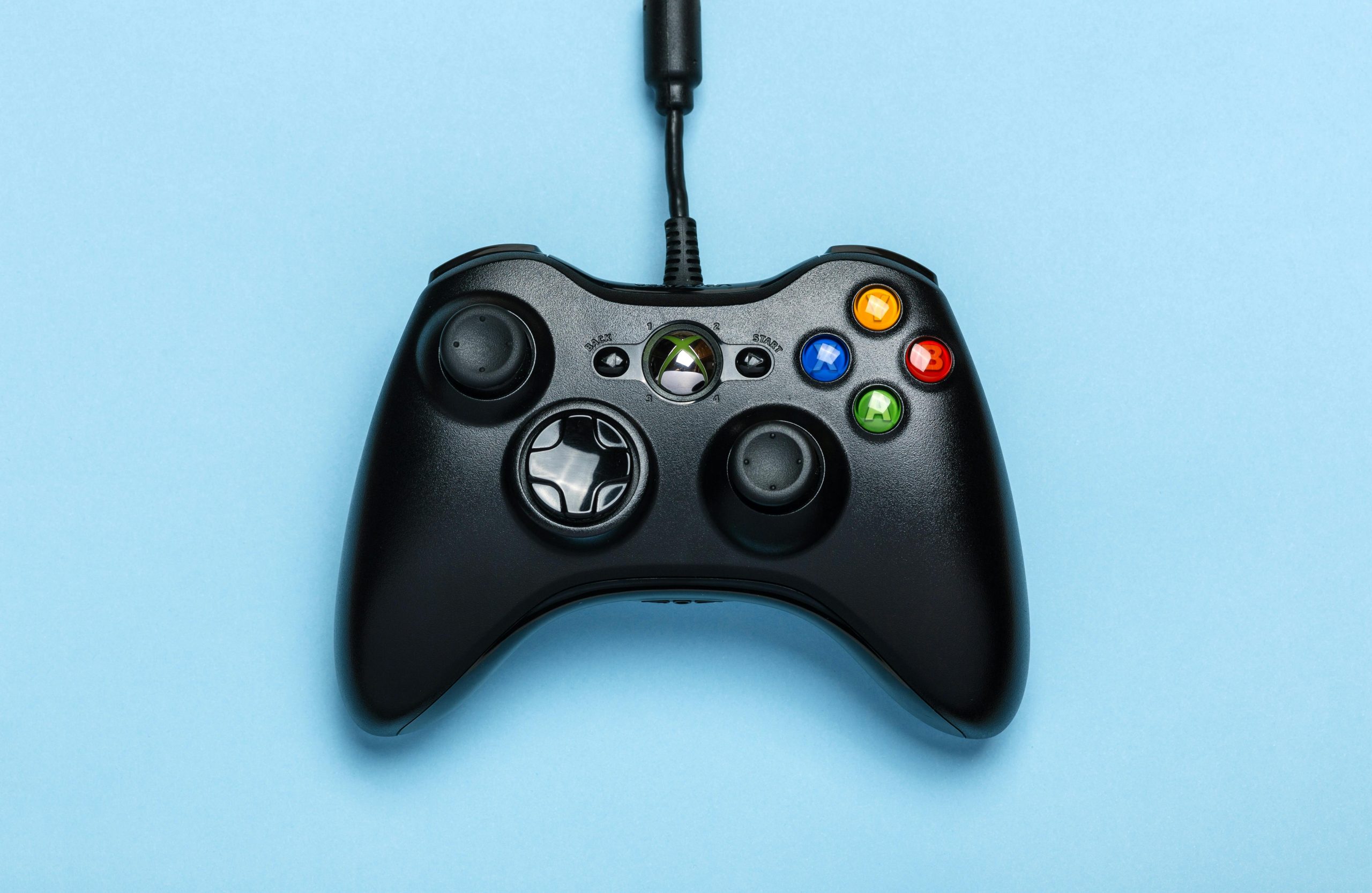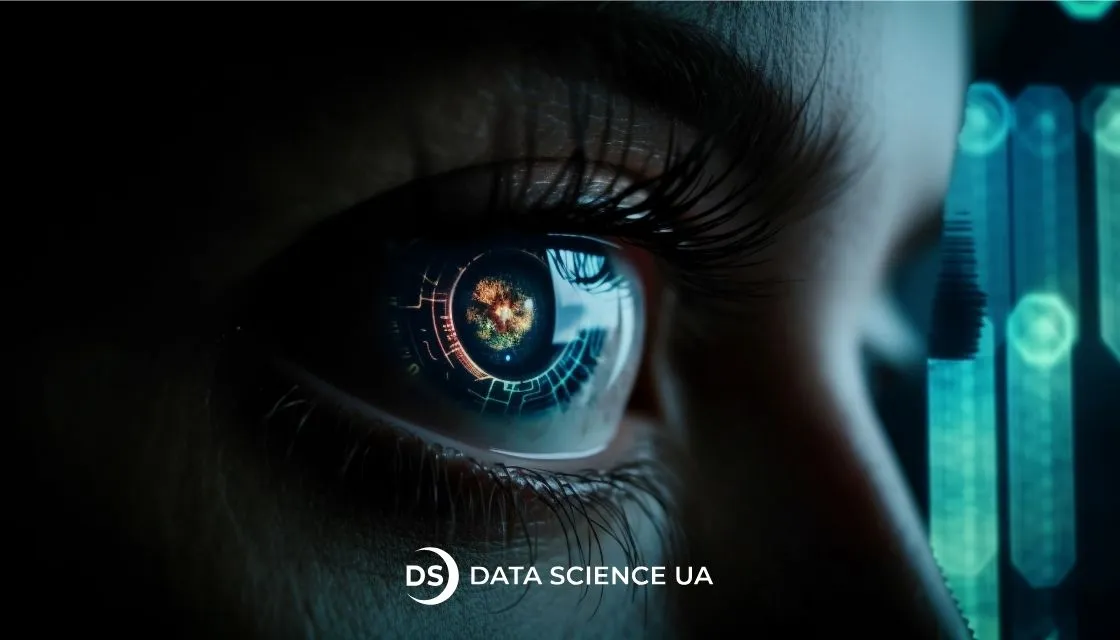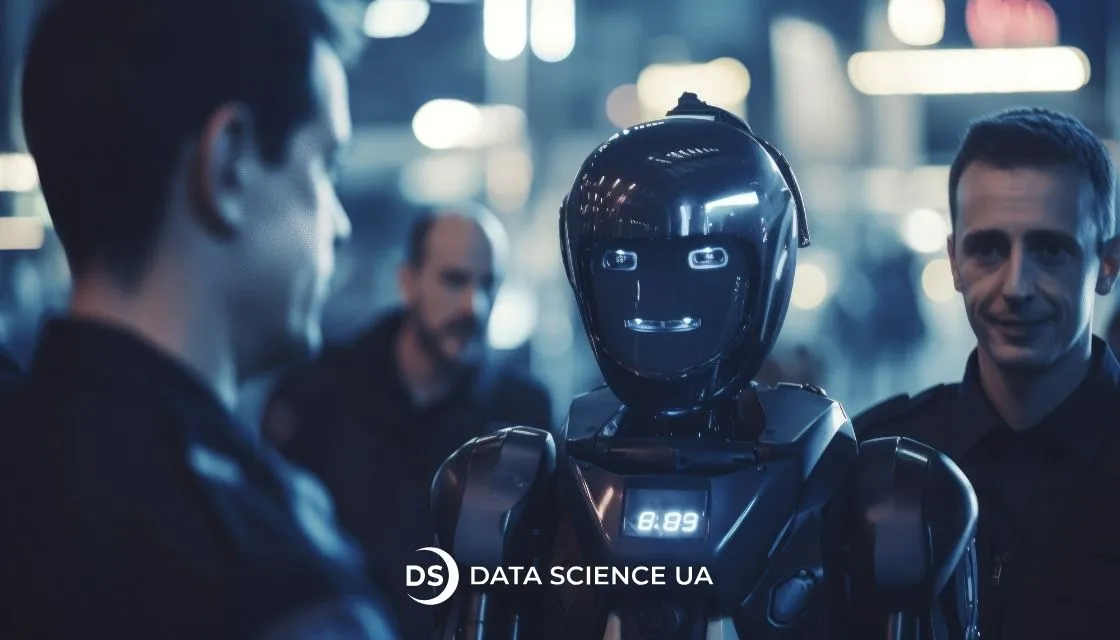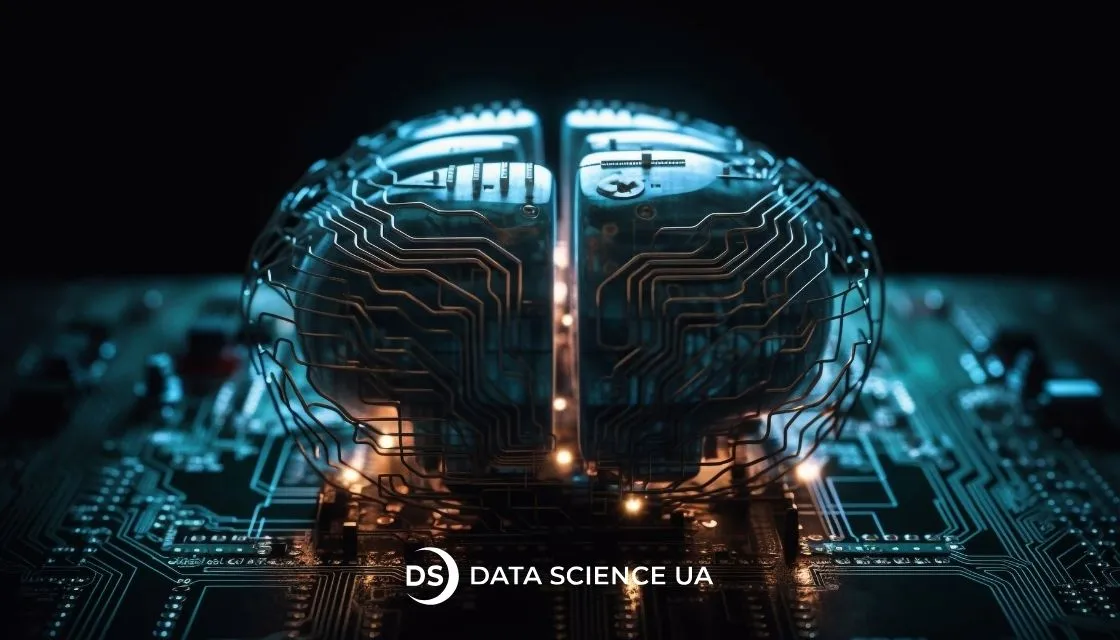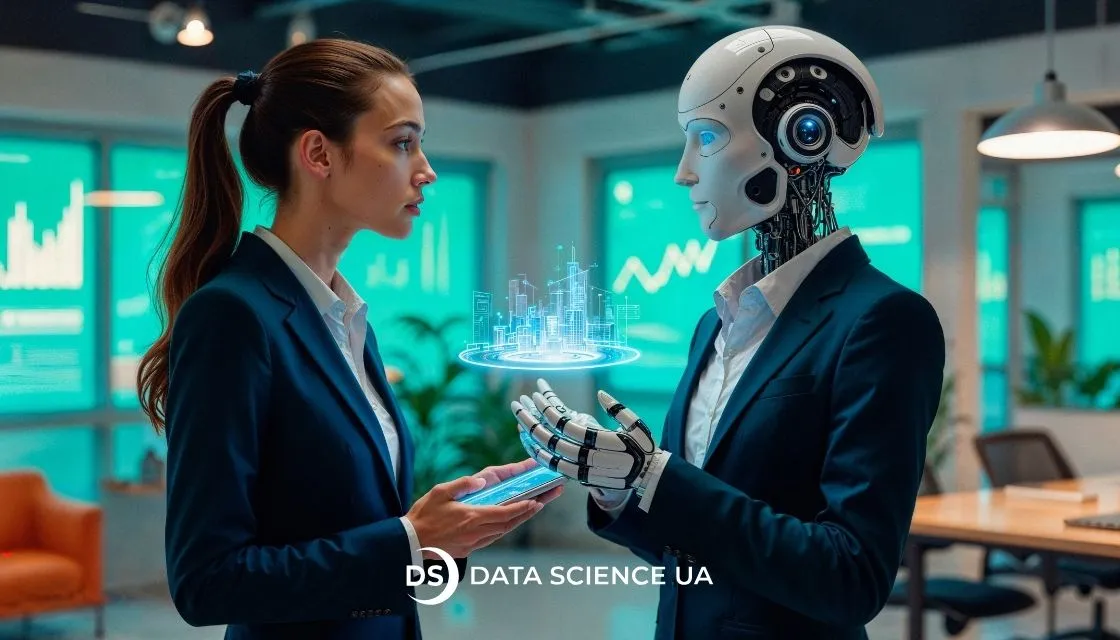The impact of AI in game development
AI is changing the way that games are created, played, and engaged with. From the generation of massive, immersive worlds to being able to make non-playable characters smarter and more realistic, AI in game development is opening up new possibilities for what is possible in game development. Game developers leverage AI to automatically generate content, enhance gameplay dynamics, and personalize player experiences, developing more dynamic games than ever.
But where is AI in gaming headed next? In this article, we’ll explore how AI disrupt videogame today, its key use cases, and the exciting trends that will define the future of interactive entertainment.
What is AI in gaming?
AI in game development is a broad term involving technologies and techniques, including the simulation of human-like cognitive functions: making decisions, learning from players’ moves, or adapting to different situations within a game. In other words, it’s a very important concept of AI that creates an enhanced experience by offering more interesting and interactive virtual worlds to the players.
In this regard, artificial intelligence in game development is used in many forms.
The algorithm of AI in video game development helps the computer characters move around. It tells them the best way to go to find the players or things they need to find. The algorithm figures out the easiest path for the characters to take, even if there are things in the way. It helps the characters move through the game world.
Behavior trees are also essential for producing more realistic NPCs. NPCs can display a wide range of complex behaviors thanks to these structures, from straightforward actions to sophisticated decision-making processes that react to player interactions. Developers can create NPCs that respond in subtle ways by using behavior trees, which improves the gameplay experience overall.
By using information from player interactions, ML improves the gaming experience even more. Based on this data, machine learning algorithms can modify and improve game mechanics, guaranteeing that gameplay stays interesting and difficult. These algorithms learn from players’ actions as they play the game, enabling in-the-moment modifications that accommodate different play preferences and styles. When these technologies are combined, they produce a more captivating gaming environment.
The influence of AI on the gaming
Artificial intelligence game design fundamentally changes how games will be designed and played. AI in game design brings in layers of complexity and interaction which have not been possible so far. With AI development services you will achieve:
– Dynamic Difficulty Adjustment: Games can estimate a player’s skill in real-time and then change the difficulty of challenges. It serves to retain the interest of players and not drive them into frustration.
– Procedural Content Generation: Artificial intelligence in game design will create enormous game worlds, characters, and quests in real time, thereby making each player’s experience unique. This further improves replayability and reduces the workload of developers.
– Real-time Analytics: This gives the developers the ability to view data on how and where a player is spending time within the game at any given moment, thus helping them understand the mechanics of gameplay and the player’s preferences even more. These will then inform future updates and game designs.
For a deeper dive into how AI in game development is transforming the industry, visit AI Gamedev.
Are game developers at risk of being replaced by AI?
With AI technologies, speculations have come up regarding job losses in the industry. However, most views hold that it complements human creativity and doesn’t replace developers. Here’s why:
Augmented Creativity: AI helps game developers do their jobs better. It takes care of the boring, repetitive tasks like making the game world, characters, and objects. This lets the developers focus on the fun, creative parts like building the story, characters, and gameplay. AI acts as a tool that helps developers be more creative and try new ideas. For example, AI can help them quickly try out different looks or features for the game, so they can test new ideas without having to do everything by hand. This helps the developers make games that are more interesting and emotional, which is what most players want.
Enhanced Collaboration: AI in video game development has gone ahead to improve collaboration even among game development teams. Such an intelligent assistant acts during brainstorming and planning sessions to analyze existing trends in games, player preferences, and successful mechanics that can help suggest ideas and ways that would align with the trending themes. The AI in gaming can suggest qualities, skills, or visuals that may just fit perfectly into the emerging trends of modern gaming or franchises within the same genre, therefore helping teams concoct creative and fascinating creations much faster.
Skill Evolution: While artificial intelligence in game development automates more of the technical elements, the types of roles and skill sets in the industry truly are in a state of flux. Game developers will need to adapt by building new types of skill sets, including proficiency in AI tools and algorithms, data analytic services, and an understanding of ethical considerations around AI use. One especially will need to understand how to integrate and responsibly guide AI-driven elements as games increasingly become personalized and adaptive to player behaviors.
Are game developers at risk of being replaced by AI?
With AI technologies, speculations have come up regarding job losses in the industry. However, most views hold that it complements human creativity and doesn’t replace developers. Here’s why:
Augmented Creativity: AI helps game developers do their jobs better. It takes care of the boring, repetitive tasks like making the game world, characters, and objects. This lets the developers focus on the fun, creative parts like building the story, characters, and gameplay. AI acts as a tool that helps developers be more creative and try new ideas. For example, AI can help them quickly try out different looks or features for the game, so they can test new ideas without having to do everything by hand. This helps the developers make games that are more interesting and emotional, which is what most players want.
Enhanced Collaboration: AI in video game development has gone ahead to improve collaboration even among game development teams. Such an intelligent assistant acts during brainstorming and planning sessions to analyze existing trends in games, player preferences, and successful mechanics that can help suggest ideas and ways that would align with the trending themes. The AI in gaming can suggest qualities, skills, or visuals that may just fit perfectly into the emerging trends of modern gaming or franchises within the same genre, therefore helping teams concoct creative and fascinating creations much faster.
Skill Evolution: While artificial intelligence in game development automates more of the technical elements, the types of roles and skill sets in the industry truly are in a state of flux. Game developers will need to adapt by building new types of skill sets, including proficiency in AI tools and algorithms, data analytic services, and an understanding of ethical considerations around AI use. One especially will need to understand how to integrate and responsibly guide AI-driven elements as games increasingly become personalized and adaptive to player behaviors.
Strategies for enhancing game development through AI
1. Adaptive Mechanics for Personalized Gameplay
AI in gaming enables the deep analysis of players’ behavior and, therefore, can render gameplay in correspondence with individual preferences. Difficulty adjustments, choice in narrative paths, and even character interactions are all ways of giving the experience much more depth. If a certain type of RPG were to use AI to track a player’s style of combat, it would consider adjusting enemy tactics to him so that the challenge is balanced and evolves with his skill.
2. Expanding the Creative Frontier in Game Design
AI analyzes trends and player feedback to be able to point out new ideas for mechanics or themes that could result in groundbreaking creativity in a conventional game design. With the ability to analyze successful games and suggest new mechanics – new genres can be born. By integrating image recognition AI, game developers can create more interactive, immersive, and responsive gaming experiences, leading the industry toward increasing realism and engagement. On how to integrate it in your game, please, check out the image recognition software development company.
3. Improving Game Testing Efficiency with AI
Testing games isn’t as exciting as you can think of it; it’s a very important process. AI can boost this process by automating testing scenarios, detecting bugs, and suggesting fixes based on previous issues. It saves time but also builds up the overall quality of the game. An AI tool would go ahead to simulate thousands of gameplay scenarios to find bugs that may not show up during manual testing, and make its launch smoother.
Application of AI for programming games
Programming will be easier thanks to AI, which automates processes like code generation and debugging. Real-time bug detection and optimization recommendations could be provided by AI-powered tools.
Improvement of game art and design with AI
Artificially created content can make a designer’s idea look even more impressive and expressive. For instance, with AI algorithms, generating textures, character models, and animation based on the artistic direction of the concept frees the artist to perfect their work.
Role of AI in testing and performance optimization of games
AI can analyze gameplay data to pinpoint performance issues and optimize the game’s resource usage. AI can recommend changes that improve a game’s performance across a range of platforms by examining how players interact with it.
Exploring the capabilities of Generative AI in gaming
Generative AI will be able to create various environments and characters, presenting players with fresh experiences each time they play. This technology greatly amplifies the replay value of games.
A great example of this is the fantasy RPG generating new quests and dungeons based on choices taken by the player, though making sure no two games will ever be alike.
Creation of game assets and live operation management
With AI in video game development, assets can also be created themselves, which automates many processes that would have otherwise been very labor-intensive. On the other hand, AI can support live operations, maintaining balance and responding to the user’s activity in real time.
Encouraging user-generated content with AI
AI-powered tools can likewise enable users to create content themselves, such as mods or user-designed levels. This opens up community involvement and lengthens the life cycle of the game.
Improving storytelling with generative AI
Coming up with engaging and lively game narratives is challenging, but Generative AI is bringing everything to level ground. AI can automatically generate dialogue, build side quests, and cause stories to adapt in real-time, making each player experience different.
However, studios are afraid of losing control over creativity or struggling with AI implementation. The solution? Relying on AI as a tool to enhance, not replace, storytelling. With the right strategy, developers can save time, build worlds out, and create richer, more engaging stories, all without compromising creative vision. Learn how our image processing agency can assist you!
Leading AI tools for game developers
A few advanced AI tools making their lead in the game development industry include:
Unity ML-Agents: they represent a modern tool that enables developers to inject machine learning algorithms right into the Unity engine. It provides an infrastructure to create intelligent agents that would learn and adapt in games. Unity ML-Agents simplifies training AI characters to interact in complex dynamic environments, opening new possibilities for more responsive and lifelike gameplay.
Artbreeder: Artbreeder is a very unique platform using AI to create and evolve digital art creation for developers and artists, providing space for collaboration in visual design. Artbreeder helps in the creation of character concepts, backgrounds, and other assets through the combination and customization of AI-generated images, and adding layers to game visuals.
DeepMind’s AlphaStar: Although it was designed primarily to play real-time strategy games at a professional level, AlphaStar is about what AI can do to understand and then execute complex strategies, providing useful insights into competitive dynamics and player strategies. In essence, studying how AlphaStar learns and adapts to opponents will allow developers to refine game balance, introduce more challenging AI opponents, and improve the player experience.
Advantages of ML and AI in game development
Better Player Engagement: AI-driven personalization is changing how players interact with games, increasing their enjoyment and satisfaction. AI can customize in-game experiences to meet the needs of each player by examining their behavior, preferences, and skill level. This keeps players interested for longer.
For instance, if a player likes to explore, the game may create new side quests or hidden objects for them to discover on the fly. Similarly, AI can modify enemy encounters to offer a more intense experience if a player prefers a fast-paced combat style. Players are more likely to return to the game, continue exploring, and even suggest it to others when they feel seen and appreciated, which is ensured by this degree of personalization. Check out machine learning development services for more info.
Smarter Development: Historically, it took a lot of manual labor to complete tasks like character animation, landscape design, and bug testing. Many of these tasks can now be completed by AI algorithms, greatly accelerating workflow and lowering human error.
For example, AI and game development can produce realistic textures, characters, and environments in a fraction of the time required by a human artist. An AI method called procedural generation makes it possible to create large, intricate game worlds using algorithms rather than by hand, which is especially useful for open-world or sandbox games. With AI generating new elements on the fly, this technique guarantees that every game session can be unique, decreasing repetition and increasing player interest.
Data-Driven Insights: Data analytics can show which characters or levels are most interesting to players, how they interact with particular features, and where they might become disinterested. Developers can look into possible reasons—perhaps the game level is too challenging or lacks clear instructions, and make changes if a certain level exhibits a high dropout rate. These improvements lessen the chance of churn, or players quitting the game completely, and help keep players interested.
How AI empowers small game studios
For small game studios with limited resources, AI is the differentiator. AI automates game testing, generates assets, and manages coding such that teams are able to direct their energy towards creativity rather than repetitive tasks. AI-driven NPC behavior, procedural content generation, and animation systems allow indie devs to build rich worlds without million-dollar budgets.
EmberGen uses AI to generate real-time visual effects, enabling small teams to deliver AAA-quality effects within a short time and Latitude (the creators of AI Dungeon) use AI for dynamic storytelling, enabling players to enjoy constantly evolving stories.
The role of AI in large game companies
Big game makers utilize AI to enhance player experience, optimize development, and build new technology. AI powers physics-driven realism, intelligent NPCs, and player analysis, boosting the immersion and monetization of the game.
Ubisoft developed Ghostwriter AI that generates NPC conversations, reducing the time spent writing without sacrificing great storytelling.
Rockstar Games utilized AI for face animations and motion capture, moving characters with believable facial expressions.
How do companies achieve the data-driven decision-making process?
At Data Science UA we assist companies in extracting real value from unstructured data sources
Issues and concerns related to AI in the video game sector
As AI creates more content, people start asking about who owns it and who can use it. Developers need to understand how to protect their work and encourage new ideas.
Impact on workforce and job security
While AI increases productivity, there is yet a fear that it will take away jobs. The industry should look at the reskilling of employees in light of new roles created by AI, making the transition smoother.
Ethical implications and job security in AI-driven game development
With AI changing game development, it also creates ethical issues and job security concerns. While AI takes over the work of creating assets, testing, and scripting, some are concerned that it might replace developers. But AI is less of a replacement and more of a collaborative tool—freeing up creativity by taking over repetitive work so that developers can concentrate on storytelling, design, and innovation.
AI's potential impact on the gaming industry
New positions in game development will arise as AI develops further, with a focus on data analysis, ethics, and oversight. Developers will need to learn new skills and knowledge in order to adjust to these changes.
Realistic and immersion experience developments
More realistic environments and characters will be possible. By doing this, players will feel more immersed and like they are actually a part of the game world.
Creation of Game Worlds Using Procedurally Generated Content
AI will make it possible to create large, distinctive game worlds that provide players with countless opportunities for exploration. This technology will improve player experiences while streamlining development.
AI as Collaborative Partners and Enemies
By taking on the roles of both allies and adversaries and modifying tactics in real time, AI will improve gameplay dynamics. Players will have a more difficult and interesting experience as a result.
AI-Powered Music and Soundscape Production
AI can create dynamic soundtracks that change with the game, increasing player emotional investment. This enables a more complex sound experience that enhances the game’s visual components.
Facilitating Natural Language Interactions
It also lets players input natural language into the game as if it were just another day of life, making experiences so intuitive and accessible. This opens new avenues in storytelling and player engagement. To check out how definitely NLP can assist you, learn more about natural language processing services.
AI-Powered Game Mastering Techniques
AI can give valuable assistance in managing game dynamics, from balance to gameplay, so gameplay will be engaging yet fair. Thus, developers would be able to build ever more complex and rewarding gaming experiences.
Role of AI in VR and AR
Most game development studios see the promise of AI with VR and AR, but technical complexity, prohibitive costs, and integration issues more often than not hold them back. The reality? AI can actually simplify VR/AR development, make it cost-effective, and scalable, not more complex.
Fear of high development expenses? Procedural generation through AI reduces the quantity of hands-on work needed, reducing costs while maintaining high-quality, dynamic worlds.
Worried about AI compatibility? AI plays flawlessly with existing VR/AR engines like Unity and Unreal Engine, so you won’t be building from the ground up. Meta’s Horizon Workrooms uses AI to enable photorealistic avatars and voice recognition, making for a more realistic experience.
Unsure of user experience? AI improves gesture recognition, speech recognition, and NPC conversation to enhance VR/AR usability and immersion. Pokémon GO illustrates how AI-driven AR can enhance real-world interaction without sacrificing user experience.
With the right AI strategy, your business can unlock VR/AR’s full potential without taking unnecessary risks.
Leveraging AI for player behavior analysis and engagement: Addressing business concerns
Game developers want to harness AI for player analytics and engagement, but fears of data complexity, regulatory risks, and unpredictable outcomes often slow down adoption. Here’s why AI is a solution, not a challenge:
Modern AI tools like machine learning-based analytics automate data interpretation, making insights clear and actionable—no PhD required. Ubisoft uses AI to improve matchmaking and balance gameplay difficulty in Rainbow Six Siege.
AI-driven analytics platforms adhere to GDPR and other regulations, ensuring secure and ethical data usage. Riot Games applies AI for toxic behavior detection in League of Legends, keeping communities safe while respecting privacy laws.
AI reduces player churn, increases retention, and optimizes monetization by personalizing in-game experiences. Blizzard uses AI to fine-tune game economies for better engagement without disrupting fairness.
AI-driven player behavior analysis isn’t just for big studios—it’s an accessible, data-backed way to boost engagement and revenue without adding unnecessary risk.
Final thoughts
Game development has benefited greatly from AI and machine learning, which have improved the development process, made games more engaging, and allowed for better decision-making. The future of interactive entertainment is being significantly shaped by AI, which is assisting developers in producing immersive and effective games by personalizing gameplay, automating development tasks, and offering real-time insights. These technologies’ influence on game development will only increase as they develop further, opening up new avenues for creativity and captivating players everywhere.
FAQ
In what ways does AI improve video game gameplay?
By customizing experiences, generating lifelike NPC interactions, and modifying game mechanics in response to player actions, AI improves gameplay. As a result, every player has a more customized and interesting experience.
Which algorithms are frequently employed in AI games?
Neural networks for pattern recognition, decision trees for NPC behavior, reinforcement learning for dynamic gameplay adjustments, and genetic algorithms for game strategy optimization are examples of common algorithms.
How can AI improve game resource management?
In order to optimize in-game economies and guarantee equitable resource distribution, AI can evaluate player data. Developers can design systems that improve player engagement and satisfaction by understanding player behavior.
